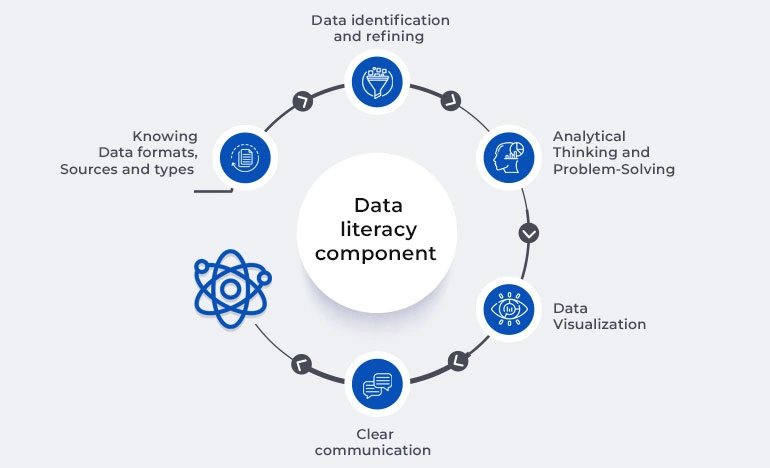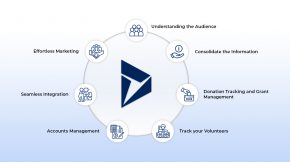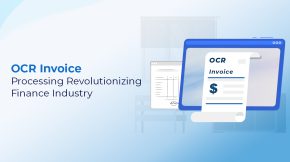Data Literacy: A guide to enhance data competencies in 2025
Most organizations struggle with a lack of Data Literacy, which leads to misinterpretation of data, poor reporting of insights, and incorrect decisions. Non-technical employees often find it hard to explain complex data, which can cause messed up strategies. Decision-making becomes tough as the team relies on intuition, instead of data, which results in valuable information going down due to the absence of analytical skills.
Ignoring data biases can result in inaccuracies and poor planning. Without robust Data Literacy, it’s difficult to make a data-based culture. It also creates difficulty for organizations to fully use their data to make better decisions.
What is Data Literacy?
Data Literacy is the skill of understanding and leveraging data efficiently. It includes knowing how to gather, assess and analyze data to gain meaningful insights.
Data Literacy includes finding patterns, securing data accuracy, and making your discoveries understandable to others. While data becomes more important to business success, having basic data literacy helps organizations make data-driven and smart decisions.
Data Literacy component

To fully utilize the data, it is necessary to build a data-literate team. There are five core components of Data Literacy that every enterprise should categorize to promote a data-oriented culture:
Knowing Data formats, Sources and types
This includes finding suitable data, understanding the Data Literacy framework and it also applied to solve specific business problems.
Data identification and refining
Data frequently needs to be purified before using it. Data Literacy involves knowing how to clean and arrange raw data to ensure that data is ready for analysis.
Analytical Thinking and Problem-Solving
Robust analytical skills are vital in Data literacy. It’s regarding identifying trends, illustrating data thoroughly, and providing meaningful insights.
Data Visualization
Presenting data effectively is the primary purpose, to make it understandable. Data Literacy requires picking the right visualization tools like graphs, charts or dashboards to deliver insights easily.
Clear communication
Effective communication defines being able to summarize complex data insights easily for people who aren’t familiar with it, it’s an important skill.
Proficiency in these skills helps in building a mighty base for decision making which will be based on data in the organization.
What is a Data Literacy Framework?
The Data Literacy framework delivers a crystal-clear plan to help you build important skills for working with data. It veils areas like analysis, management, visualization and data collection. Besides just skills, the framework also aims at learning goals, such as recognizing tendencies and understanding data privacy. By following this framework, you’ll attain the problem-solving abilities and knowledge essential. To manage data efficiently and make better decisions.
Moreover, it reinforces critical reasoning, will assist you in analyzing data sources, demonstrating the insights correctly, and referring them to answer real-world challenges. This standardized approach enables you to become more optimistic in dealing with data.
Why is Data Literacy important?
A study found that 87% of employees believe basic data skills are essential for their routine tasks, and the owner of a business hopes for these skills from all the workers. However, only 40% of employees realize they have received the required training. Accenture’s research also focuses on the fact that companies lose an average of 43 hours per employee yearly due to delays from data issues. Nourishing a data-literate culture within the company, due to the increasing volume of data can lead to valuable advantages, here are some data literacy importance below:
- Smarter, data-driven decisions
- Clear ROI insights and attribution
- Boosted employee satisfaction and retention
- Enhanced customer experience and satisfaction
What skills are required for Data Literacy?
Data Literacy skills are divided into two categories:
Nontechnical Skills:
- Identifying the right data for specific needs.
- Understanding the business context behind data.
- Thinking critically about data findings.
- Spotting misused or misrepresented data.
- Communicating data insights effectively, often through storytelling.
- Gaining industry-specific knowledge to understand trends.
Technical Skills:
- Conducting data analysis using statistical techniques.
- Using data analytics tools and knowing when to apply them.
- Interpreting data visualizations, dashboards, and their sources.
- While not always required, programming knowledge can support advanced data analysis and machine learning tasks.
How to become Data Literate
Data Literacy can be crucial to becoming data literate to transition to a data-driven culture, consider these key steps:
Impose Data Literacy: It starts by surveying employees to understand current data skills and identify intelligence gaps.
Recognize Experts: Identify natural leaders within the department who can endorse data literacy and help elevate it across the organization.
Execute Training: Induce a thorough data literacy strategy that involves both technical and non-technical training for all employees.
Scale Victory: Set clear standards to measure the strength of the data literacy program. These include skills advancement and the impact on decision making.
Data Literacy benefits
These are several benefits of Data Literacy, here are some of the reasons why it is important:
- Data fluency helps organizations and individuals make data-centric decisions by analyzing patterns and trends.
- It allows the optimization of operations, reducing incompetency and improving gross workflows.
- Businesses that are data literate can have enough understanding of market trends, and operational implementation to stay onward.
- It helps in recognizing feasible concerns, aiding organizations to make informed decisions to minimize risks.
- Daily assessment helps in refining the technique.
The challenges of Data Literacy
Supporting Data Literacy in an organization can be challenging due to countless hurdles, which include:
- Knowledge Gaps: Everyone doesn’t need to have skills to deal with data. Some employees may struggle to learn and enforce these skills, which can be a reason to slow down progress.
- Obstacle to Change: It requires change to move into data data-driven culture, and not everyone is satisfied with it. Some employees may be resisting and hesitating to take up new ways of using data.
- Lack of Assistance: To ensure the success of data literacy, there need to be experts across the organization. If only some departments focused on data, the efforts may not be transferred to everyone.
- Inferior Data Management: It’s difficult to make useful data management without proper rules and standards. Better data governance ensures that data is accessible, accurate and reliable for everyone to use adequately.
Build Data Literacy with a framework
It can be a complex procedure to build a data literacy framework for your organization. It needs commitment and cooperation across all levels. Here’s an instant guide to creating an efficient framework:
- Ask significant Questions: Determine the main data goals and hurdles. What does your organization need to achieve with data?
- Prioritize Stakeholders: Attain support from team members and leaders so that everyone notices the value of data literacy.
- Generate Employee Journey Map: Markup on how employees will evolve in data fluency, from beginner to advanced, to ensure a detailed learning path.
- Evaluate Business Needs: Valuate the specific data needs of diverse teams and departments to ensure the framework is customized.
- Integrate Initial Framework: Build the framework, setting highlights, skills to be trained and the tools required.
- Educate Data Skills: Conduct daily practice sessions, ensuring employees can manage data positively and apply it efficiently in their positions.
Data Literacy Examples
Data Literacy is key to improving IT companies in several ways:
In an IT company, data literacy is crucial around teams. Developers use data to simplify software delivery, while cyber security teams interpret threat data to improve security. Operations monitor interpretation metrics to upgrade infra, and customer support locates reoccurring problems through data analysis to refine services.
Project managers monitor productivity and progress using data, while sales and marketing enhance strategies based on insights. Overall, Data Literacy aids every department to make informed decisions, customer satisfaction and boosting effectiveness.
Getting started Data Literacy with Beyond Key
At Beyond Key, we understand the control of data and the significance of a data-literate manpower. It’s time to take the next step toward creating a data-driven culture. Start by executing the steps we have shared, from producing a robust data framework to providing important training programs for your team.
Using the right tools and continuously remaining updated on the data trends to secure your organization’s roots. With Beyond Key’s expertise, you can navigate the journey of data literacy with faith, releasing valuable insights and monitoring business growth every step of the way. Let’s make data work for you.













